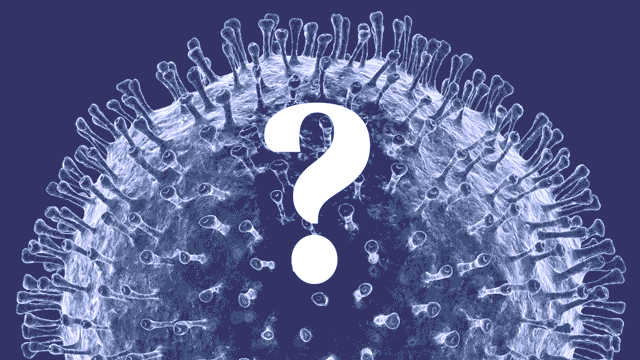Your coronavirus questions answered: How can we protect ourselves from COVID-19


As part of our responsibility to get you the information you need to know when you need it, we’ve been taking your coronavirus questions to the experts.
Last week, they answered questions about how the virus works, how long this will all last, and how to do social distancing properly.
This is a constantly changing situation and answers are current as of time of publishing.
Please check www.health.gov.au for the latest.
Professor Emeritus Gerry Fitzgerald is a public health expert from the Queensland University of Technology. He was previously Chief Health Officer for Queensland.
Over to him.
Is it best to not take paracetamol if you have a fever to help promote a high a fever as possible to cook the virus out of you?
It is ordinarily wiser to keep your core body temperature down. So taking paracetamol [most common brand name Panadol] will not change the outcome.
If you are in any doubt you should discuss this with your medical advisor.
Should I be wearing a mask when I go to the supermarket?
As long as you are not personally ill, there is no advantage to wearing a mask.
The types of mask you can generally buy in the chemist do not filter out virus particles. There is no harm to wearing them.
What is the government’s end goal? Are they hoping to flatten the curve or extinguish the virus? I don’t think it is appropriate for the public to be left in the dark about this crucial information.
The aspiration of the authorities is clearly to prevent a significant community outbreak in this country.
Almost all of the cases so far have been among people who have returned from overseas or those who have been in contact with them.
There are a number of people still under investigation in which the linkage is not clear and that is causing concern that there has been some community transmission.
Thus, the strategies include identification of everyone with the disease, isolating those people and then contacting, testing and monitoring those who have been in contact with them.
However, if it’s not successful in eliminating the disease then at least these same strategies will flatten the curve and allow the health system to cope with the number of people who do fall ill.
Eventually, the disease will go away.
Should married couples sleep in separate beds/rooms in case one becomes infected, particularly if aged 70+?
It would be better to try and protect both by isolating them both and protecting either from getting the virus.
Certainly, if one gets the virus then they should isolate form each other.
Should we proceed with dental appointments?
The risk is very small. Nevertheless, most dentists have stopped all routine visits for the moment
How should I clean the house after recovery?
Normal cleaning methods are appropriate.
Soap and water will clean away the virus and common disinfectants will also help.
The aim is to clean commonly used surfaces.
The virus can last up to nine days on surfaces but it will eventually die. So cleaning commonly used surfaces will be good, but you don’t have to scrub every millimetre of the house.
After quarantine, lockdown, social distancing, etc. What happens then? Does the virus weaken and just die? When are we not at risk of infection and catching it again?
Because viruses need living cells to stay alive and replicate, if we can break the transmission of the virus from one person to another, eventually the virus will go away.
However, we may be able to control it in Australia but it may continue to spread around the world and so we will remain at risk from re-introduction of the virus into the country until it disappears from all countries.
The history is that eventually these viruses do disappear. This will be sped up if we can develop a vaccine for the virus.
We don’t know for sure as yet if you will be at risk of contracting it again. However, leading authorities such as Nobel Laureate Professor Peter Dougherty believe recovery from the virus should give us immunity to it and that, therefore, a vaccine should be able to do the same thing.
The doubt is raised by the fact that the most common coronavirus we are familiar with is the common cold and this does not provide immunity because of the frequent changes in the virus structure.
How long can the virus stay on your hands without washing them?
Coronaviruses have been shown to stay on surfaces for up to nine days. I am not sure anyone has tested how long it stays on hands.
The best advice is to wash your hands before you touch objects that others may touch and after as well.
For example, if you go to the supermarket, you may be wise to wash your hands on the way in (or use sanitiser if it is available) clean down the trolley and then, when you have finished handling the products, wash your hands again.
Remember the risk is low at present,
Can I play singles tennis?
The risk of playing tennis is very small provided you keep a distance from others. Wash your hands before and after.
However, watch government advisories about going out of your own home.
My sibling is a renal patient and has dialysis three times a week. When it comes to total lockdown can I still take him there or will he have patient transport? We don’t live in the same house.
This is tricky as your sibling will be at risk should they contract COVID-19. Perhaps this is one for your medical advisors.
It is said that people with high blood pressure are at greater risk of symptoms becoming more serious. Does this include people whose blood pressure is stable on medication?
I don’t know at present. This is an unusual risk factor and so it is not clear whether it relates to hypertension which is under control or not.
What is the timeline between contact with coronavirus and a positive test?
The World Health Organisation currently estimates the incubation period ranges from one to 14 days, with a median incubation period of five to six days.
To date, the exact nature of transmission of COVID-19 is not well understood.
Most people contract the disease from someone who is symptomatic. However, there is a technical possibility that you could contract it from some in whom symptoms have not yet begun or in whom the symptoms are very mild.
Thus, authorities are following up anyone who may have had contact one to two days before the onset of symptoms.
The current test looks for the presence of the virus in the nose and throat.
Thus, it may only be positive while the person has symptoms and for one to two days before.
New tests have been developed which test for the presence of the antibody in blood and this may be positive before symptoms and during recovery.
Can we please have a comprehensive list of symptoms?
The symptoms include:
- fever
- coughing
- sore throat
- fatigue
- shortness of breath
The Australian Government Health site describes the symptoms of Covid-19 and is available here.








